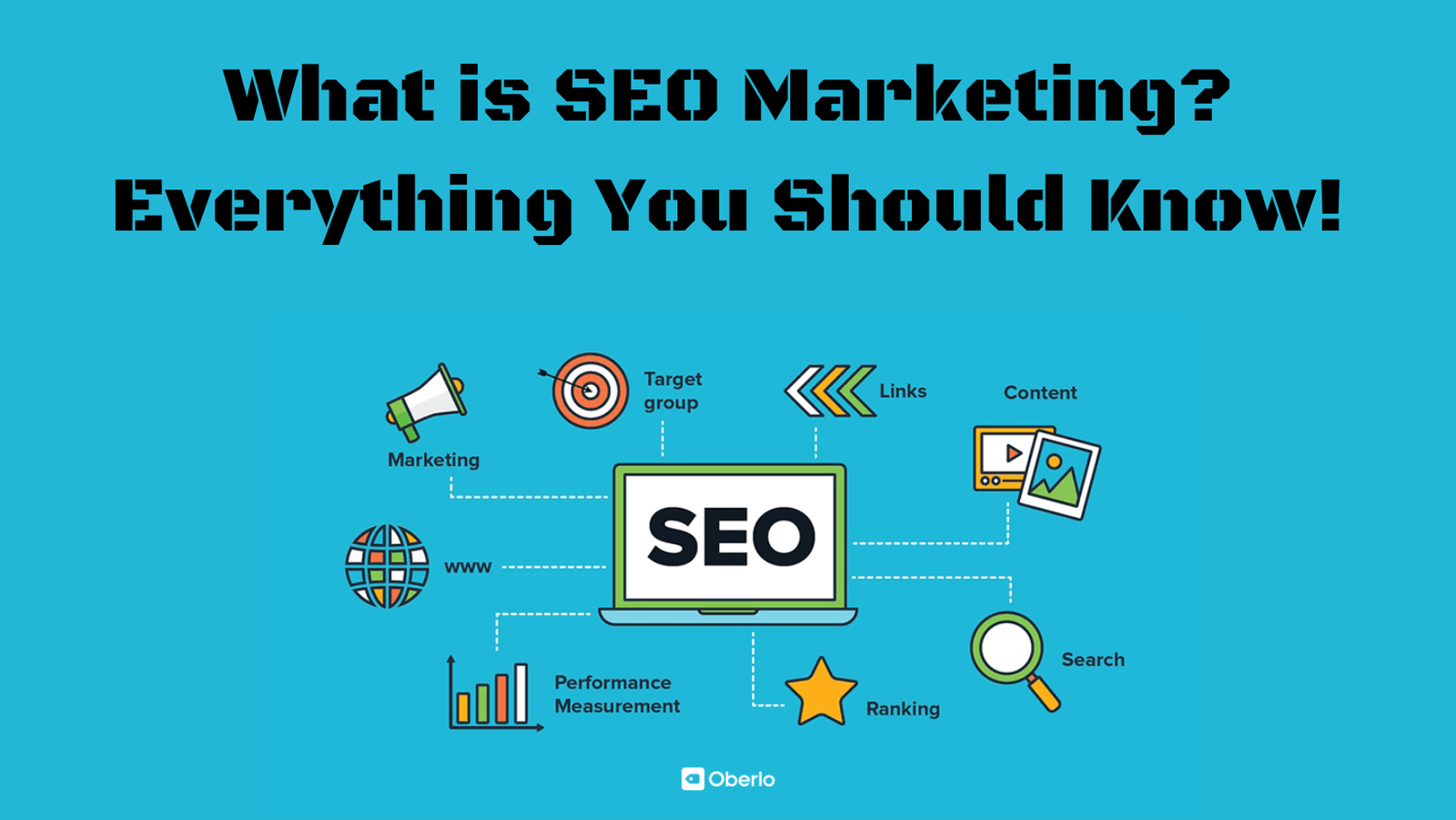SEO marketing, an abbreviation for Search Engine Optimization marketing, is a fundamental strategy within digital marketing that focuses on enhancing a website’s visibility and ranking in search engine results pages (SERPs).
The goal is to attract more organic (non-paid) traffic to a website, ultimately improving its reach and effectiveness in meeting business or content goals. This article will explore the different facets of SEO marketing, its techniques, and its critical role in digital marketing strategies.
Understanding SEO
Definition and Importance
SEO involves optimizing a website to increase its likelihood of appearing at the top of search engine results when users search for related keywords. The better a site’s SEO, the higher its ranking, which is crucial because most users tend to focus on the first few results.
How Search Engines Work
Search engines use algorithms to crawl web pages, index the information, and rank these pages based on relevance and authority. These algorithms consider various factors, including keywords, site structure, user experience (UX), mobile compatibility, and backlinks.
Core Elements of SEO
On-Page SEO
Content Creation
In the realm of SEO, compelling content reigns supreme. Regularly updated content that is both high-quality and relevant attracts not only users but also search engines. This is achieved through the strategic use of targeted keywords woven throughout the content, including titles, descriptions, headers, and the body itself.
HTML Tags
Specific HTML tags, including title tags, meta descriptions, and header tags (H1, H2, H3), act as signposts for search engines, guiding them to the most important information and structure of your webpage. This helps them effectively index and understand your content, ultimately influencing how your page ranks in search results.
Image Optimization
While images are a powerful tool to draw users in, they can also slow down your website if not optimized. To create a seamless experience, ensure your images are compressed to a smaller size, but still maintain good quality. Descriptive file names and alt text will further improve accessibility and search engine ranking for your website.
Off-Page SEO
Backlinks
In the world of Search Engine Optimization (SEO), backlinks are like gold stars from other websites, vouching for the credibility and value of your content. These links, pointing from other webpages to your site, signal to search engines that your content is trustworthy and deserves a higher ranking in search results.
Social Media
Social media acts as a springboard for SEO, boosting content discoverability and driving traffic back to your website. Even though social media engagement isn’t a direct SEO ranking factor itself, it can create a ripple effect by increasing brand awareness and attracting a wider audience who may then find your website through search engines.
Technical SEO
Website Speed
In the competitive world of web presence, website speed reigns supreme. Not only does a fast loading experience improve user satisfaction by keeping visitors engaged, but it also translates to higher rankings in search results.
Search engines prioritize websites that deliver content quickly, recognizing that speed is a crucial factor in user experience. By optimizing your website for speed, you can achieve a win-win scenario: a smoother experience for your visitors and a more prominent position in search engine rankings.
Mobile-Friendliness
As more and more people access the web through smartphones and tablets, search engines like Google favor websites that deliver a seamless experience on mobile devices. This prioritization of mobile-friendliness ensures users can easily find and interact with the information they seek, regardless of the device they’re using.
Secure Website (HTTPS)
Websites that prioritize user security by implementing HTTPS encryption benefit from both increased user trust and improved search engine visibility. This crucial protocol ensures the safe transfer of information, safeguarding sensitive data like passwords and credit card details.
By demonstrating a commitment to user privacy, HTTPS-enabled sites can cultivate a positive user experience and potentially climb search engine rankings, where security is a recognized factor.
Advanced SEO Techniques
Voice Search Optimization
Voice search optimization tailors websites to rank higher in results delivered by voice assistants like Siri or Google Assistant. This involves understanding how people speak natural language when asking questions, and incorporating those conversational phrases and longer queries into website content.
AI and Machine Learning
Artificial intelligence (AI) is revolutionizing search engines, with algorithms constantly evolving to better understand and rank content. Websites that can adapt to these changes, by understanding the underlying AI logic, are more likely to maintain or even improve their search engine optimization (SEO) position.
Local SEO
In the digital age, attracting customers often hinges on online searchability. Local SEO specifically targets local businesses, ensuring their visibility in search results for relevant geographic areas.
This involves pinpointing keywords that locals typically use and keeping a Google My Business profile updated with accurate information, effectively acting as a digital storefront that steers potential customers through the virtual door.
SEO Tools and Analytics
Google Analytics
A powerful tool for website owners, Google Analytics unlocks a treasure trove of data about your visitors. It tracks website traffic, revealing who comes to your site, how they found you, and what actions they take while there. This user behavior data empowers you to measure SEO effectiveness, optimize your site for better engagement, and ultimately achieve your marketing goals.
SEO Platforms
SEO success hinges on understanding your competitive landscape. Fortunately, SEO platforms like SEMrush, Ahrefs, and Moz provide comprehensive data and analysis, allowing you to refine your strategy for optimal results.
Check Similiar Guide: How to Learn SEO? A Step-by-Step Guide!
Conclusion:
In the ever-changing world of digital marketing, SEO (Search Engine Optimization) stands out as a foundational and dynamic strategy. By meticulously optimizing a website, SEO propels it towards the top ranks of search engine results pages (SERPs) for relevant searches. This increased visibility translates into a surge of organic traffic, attracting potential customers who are actively seeking the products, services, or information a business offers.
SEO encompasses a three-pronged approach: on-page optimization focuses on crafting high-quality content with relevant keywords, off-page optimization involves building backlinks from credible websites to establish authority, and technical SEO ensures a website’s structure and functionality are flawless for both search engines and users.
By mastering these combined elements, businesses can significantly amplify their online presence, drawing in a steady stream of organic traffic and propelling them towards achieving their digital marketing objectives. However, the SEO landscape is a constantly shifting terrain.
Search algorithms and technologies are sophisticated and ever-evolving, demanding businesses to stay abreast of the latest trends and best practices. This commitment to continuous learning ensures businesses retain a competitive edge and thrive in the dynamic digital marketplace.
Frequently asked Questions
What is SEO marketing in simple terms?
SEO marketing, short for Search Engine Optimization marketing, is all about making your website more attractive to search engines like Google. By following SEO practices, you increase your website’s chances of showing up higher on search results pages (SERPs) when people search for things related to your business.
Why is SEO marketing important?
Most people don’t click past the first page of search results. SEO helps your website rank higher, leading to more organic traffic (visitors who find your site naturally through search). This translates to increased brand awareness, more leads, and potentially more sales.
What are the different types of SEO marketing?
SEO can be broken down into two main categories: on-page SEO and off-page SEO. On-page SEO focuses on optimizing the content and technical aspects of your website itself. Off-page SEO involves building your website’s authority through backlinks (links from other websites to yours).
What are some common SEO marketing tactics?
There are many SEO tactics, but some of the most important include keyword research (finding the terms people use to search for your products or services), content creation (making valuable and informative content relevant to your target audience), and link building (acquiring high-quality backlinks from other websites).
Is SEO marketing expensive?
SEO marketing itself isn’t inherently expensive. However, there can be costs involved, such as hiring an SEO specialist or using paid SEO tools. The good news is that many SEO practices can be implemented for free or at a minimal cost.
How long does SEO marketing take to work?
SEO is a long-term strategy, and it can take several months to see significant results. However, the ongoing benefits of good SEO make it a worthwhile investment for most businesses.
Can I do SEO marketing myself?
Absolutely! There are many free resources available online to help you learn about SEO best practices. However, for complex websites or highly competitive industries, consulting with an SEO professional can be beneficial.
What are some common SEO mistakes to avoid?
Trying to stuff keywords unnaturally into your content is a big one. Other mistakes include neglecting mobile responsiveness, having slow website loading speeds, and not having a clear sitemap.
How can I measure the success of my SEO marketing efforts?
There are many SEO analytics tools available, both free and paid, that can help you track your website’s traffic, keyword rankings, and other important metrics.
Is SEO marketing still relevant in 2024?
Search engines are constantly evolving, but SEO remains a crucial aspect of any digital marketing strategy. As long as people rely on search engines to find information online, SEO will continue to be important.


